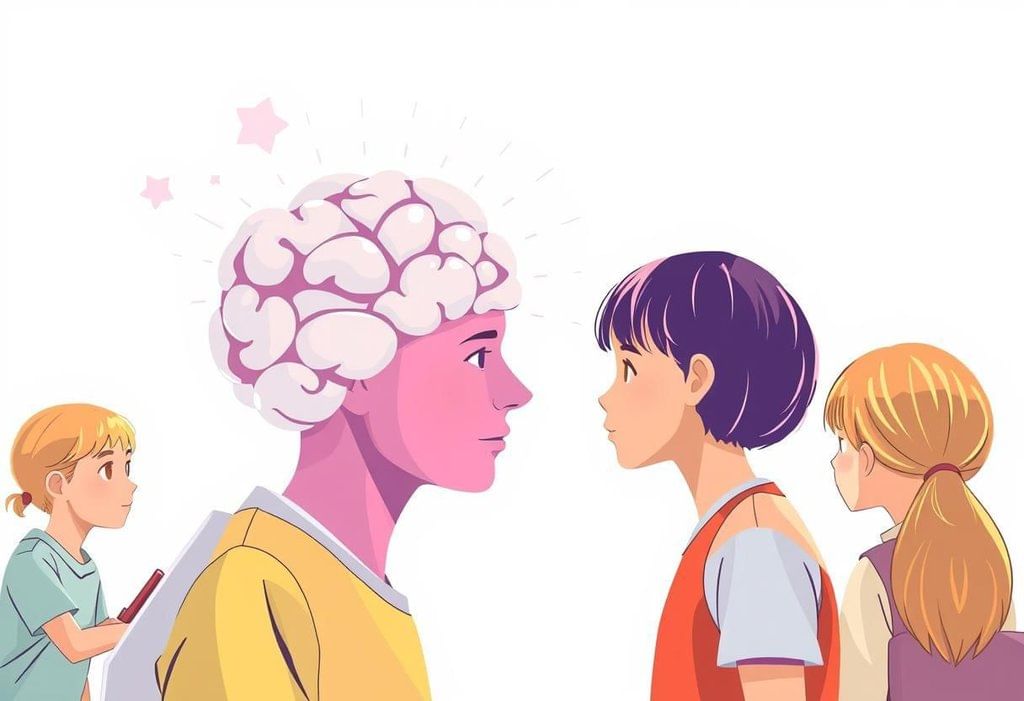Meaning of Teacher Education - 1 Chapter Notes | Crash Course for UGC NET Education PDF Download
Introduction
Teachers play a crucial role in the development of society. In the past, teacher education simply meant that anyone who knew the subject could become a teacher after taking a short course on classroom management and communication. However, today, a good teacher needs to understand pedagogy, child psychology, and the unique traits and needs of children. Therefore, teacher education is now seen as the professional preparation of individuals to become teachers. Empowering Educators
Empowering Educators
The success of a learner depends on the competence and motivation of the teacher. Teacher education refers to the formal programs designed to prepare teachers for elementary and secondary schools. It includes policies and procedures aimed at equipping teachers with the necessary knowledge, attitudes, behaviors, and skills to perform effectively in schools and classrooms.
Teacher education is crucial for developing teachers' proficiency and competency, enabling them to meet the demands of the profession. Between 1906 and 1956, teacher education was known as "teacher training," focusing mainly on skill training and preparing teachers as technicians. However, this approach was narrow and did not encompass the broader aspects of teaching.
The National Council for Teacher Education (NCTE) defines teacher education as a program involving education, research, and training for individuals who will teach from pre-primary to higher education levels.
Elements of Teacher Education
Teacher education encompasses various essential elements that contribute to the development of effective teachers. These elements include teaching skills, pedagogical theory, and professional skills. Teaching Excellence
Teaching Excellence
Teaching Skills
- Teaching skills involve training and practice in various techniques, approaches, and strategies necessary for effective teaching.
- These skills help teachers plan and deliver instruction, conduct assessments, and manage classrooms efficiently.
- Additionally, teaching skills include the preparation and use of instructional materials.
Pedagogical Theory
- Pedagogical theory provides teachers with philosophical, sociological, and psychological insights that inform their teaching practices.
- This theory varies based on the context and participants involved in the educational process.
Professional Skills
- Professional skills encompass various techniques and strategies that teachers use to grow in their profession and contribute to its development.
- These skills include counselling, interpersonal communication, computer proficiency, and information retrieval and management.
Together, these elements provide a holistic approach to teacher education, ensuring that teachers are well-equipped to handle the complexities of the classroom and contribute to the broader educational community.
Objectives of Teacher Education
The teacher education should aim at providing human qualities so that the teacher can develop the character of learners.
Teacher education should aim at developing
- Self-Confidence of the Teacher
- Adequate Knowledge of Subject Matter
- Required Pedagogical skill
- Child Psychology Skill
- Teaching Attitude
- Instructional Facilities
- Understanding Individual Differences of Child
- Direct Satisfaction to Parents
 Educator Growth
Educator Growth
Nature of Teacher Education
Teacher Education as a Lifelong Process
- Teacher education is an ongoing journey that lasts a lifetime. It includes three main stages: pre-service, induction, and in-service training. These stages represent a continuous process of learning and development for teachers.
- The idea that "teachers are made, not born" emphasizes that teaching is both a science and an art. Teachers cannot rely solely on their education; they must learn the practical skills and adapt to different situations.
Broad Scope of Teacher Education
- Teacher education is expansive. In addition to pre-service and in-service programs, teachers are expected to participate in various other activities, such as community programs and extension activities like literacy and development initiatives in society.
- Teacher education is not static; it is constantly evolving. To prepare teachers for contemporary challenges, teacher education programs need regular updates to reflect current trends and practices.
Core Elements of Teacher Education
- The core of teacher education lies in its curriculum, design, structure, organization, and modes of transaction.
- The curriculum is crucial and should be sensitive to field application. It involves a blend of theoretical knowledge with practical insights from various disciplines.
- Teacher education is structured at different levels, including elementary, pre-primary, primary, secondary, higher secondary, and tertiary levels. The curriculum is designed to provide knowledge appropriate to each level, ensuring that both students and teachers receive relevant training.
- The process of teacher education involves input from learners, the learning process itself, and the output in the form of newly educated students.
Scope of Teacher Education
The scope of teacher education refers to the opportunities and applications within the field. It can be understood in various ways.
Teacher Education at Different Levels of Education
Teacher education is necessary at all levels of education, including pre-primary, primary, elementary, secondary, higher secondary, and tertiary education. However, the knowledge and skills required by teachers vary at each level, necessitating stage- and level-specific education.
Additionally, teacher education is essential for training individuals to become teachers. This training is conducted in professional institutes where aspiring teachers receive specific instruction on how to work with students. In summary, wherever there are teachers, there is a need for teacher education. Inclusive Learning Spaces
Inclusive Learning Spaces
Triangular Basis of Teacher Education
1. Psychological Basis:
- The psychological basis of teacher education is rooted in the understanding of how students learn and develop. It draws on theories of cognitive, emotional, and social development to inform teaching practices.
- For example, knowledge of Piaget's stages of cognitive development can help teachers tailor their instruction to the developmental level of their students. Similarly, understanding Vygotsky's concept of the zone of proximal development can guide teachers in providing appropriate scaffolding to support student learning.
2. Sociological Basis:
- The sociological basis of teacher education emphasizes the role of society and culture in shaping education. It involves understanding the social context in which education occurs, including factors such as social class, ethnicity, and cultural norms.
- For instance, teachers need to be aware of how social inequalities can impact student learning and achievement. This awareness can inform their instructional practices and help them create a more equitable learning environment.
 Learning in Context
Learning in Context
3. Philosophical Basis:
- The philosophical basis of teacher education involves the study of different philosophical perspectives on education. This includes understanding various schools of thought, such as pragmatism, idealism, realism, and existentialism, and their implications for teaching and learning.
- For example, a teacher informed by pragmatist philosophy may focus on experiential learning and real-world applications of knowledge, while an idealist teacher may emphasize the development of moral and ethical values in students.
Aspects of Teacher Education
Teacher education revolves around several key aspects: the teacher educator, the student teacher, the content, and the teaching strategy.
The quality of teacher education is crucial for its effectiveness. The way pedagogical inputs are used in teacher education and how they assist future teachers depend on the quality of the teacher's education. The primary aim of teacher education is to equip student teachers with the necessary knowledge, attitudes, and skills.
Student teachers need to have a strong conceptual and theoretical foundation to understand the intricate details of the teaching profession. This preparation enables them to carry out their responsibilities as teachers effectively. Teaching Essentials
Teaching Essentials
Types of Teacher Education Program
Teacher education programs can take various forms, but they are broadly categorized into three main types:
Pre-Service Training
- Pre-service training for teachers occurs before they take on their teaching roles. This training is essential for student teachers to grasp the responsibilities and skills required for the profession.
- Pre-service training includes activities such as school visits, classroom observations, and practical assignments, with a focus on inclusive education.
Objectives of Pre-Service Training
- To ensure teachers understand the aims and objectives of education.
- To promote a proper understanding of child growth, development, and learning processes.
- To help teachers plan and present subject matter in a way that engages and motivates students.
- To develop communication and interpersonal skills for effective interaction with children.
- To foster the ability to promote the overall development of children in their care.
 Teacher Training Insights
Teacher Training Insights
In-Service Training
- In-service training is designed for current teachers and can take various forms, including:
- Intensive training sessions over a short period.
- Regular sessions held weekly or monthly over an extended period.
- A series of intensive training sessions spread out over time.
- Groups of teachers from different schools or entire teams from a single school can participate.
Objectives of In-Service Training
- To provide professional training and qualifications to untrained teachers.
- To upgrade the qualifications of currently serving teachers.
- To offer refresher courses on modern teaching practices and materials.
- To improve the quality of teacher education through continuous training of teacher educators.
Distance Learning/Self-Study
Distance learning or self-study in teacher education is designed for teachers who are unable to attend training events in person. It offers flexibility in terms of time and location, making it a suitable option for working adults.
In distance education, there is a separation between the teacher and the learner. However, this separation is bridged through the use of various resources such as DVDs, podcasts, and online lectures.
Distance learning can be beneficial if:
- Appropriate methods are employed.
- There is regular interaction between the teacher and learner.
- Learners receive valuable feedback.
Objectives of Distance Learning
- To offer an effective alternative pathway to broader educational opportunities, particularly in higher education.
- To provide education that is efficient and cost-effective.
- To extend educational facilities to all qualified individuals who are unable to join regular university and other courses for various reasons.
- To create opportunities for academic pursuits for educated citizens who wish to enhance their knowledge.
 Virtual Learning
Virtual Learning
Advantages and Disadvantages of Pre-Service Training, In-Service Training, and Distance Learning
Pre-Service Training:
- Pros:
- Student teachers are already trained in inclusive education.
- They are less resistant to new ideas and approaches to teaching.
- They are more cooperative and open to new approaches.
- Cons:
- Student teachers may lack adequate preparation in inclusive education.
- Their approach to teaching can be influenced by their competence.
- They may become resistant to new ideas once they start working.
In-Service Training:
- Pros:
- Teachers can apply what they have learned in practice.
- Cons:
- Some resistance may be present, and the learner can be stringent.
Distance Learning:
- Pros:
- Learners have a lot of experience that can be related to the course material.
- Learners can study at their own pace and place.
- Cons:
- The time duration and location of the course are not fixed.
- There is a requirement for electronic media and internet access, which may not always be available.
- Basic computer skills are necessary.
- Feedback may not be frequent.
- Lack of human contact may lead to demotivation.
|
396 videos|67 docs
|
FAQs on Meaning of Teacher Education - 1 Chapter Notes - Crash Course for UGC NET Education
| 1. What is the meaning of Teacher Education? |  |
| 2. What are the objectives of Pre-Service Training? |  |
| 3. What are the objectives of In-Service Training? |  |
| 4. How does Distance Learning benefit teacher education? |  |
| 5. What is the Expository Method, and how is it applied in teaching? |  |
















